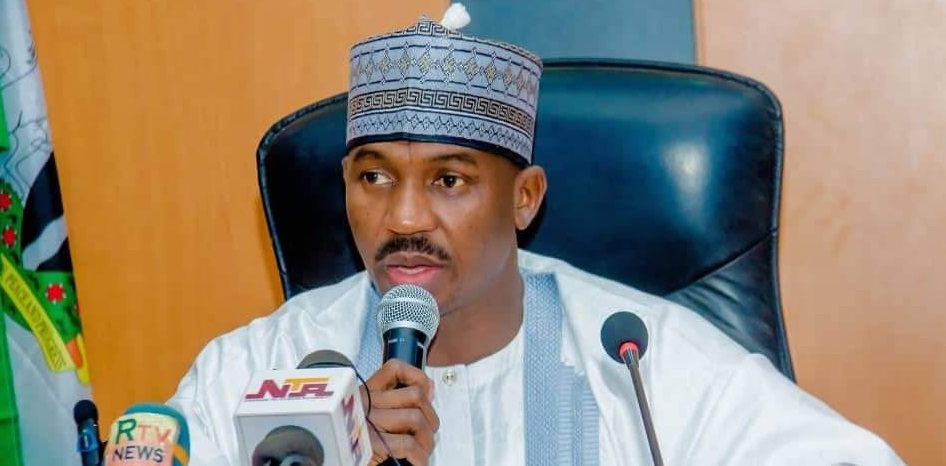The 2024 U.S. presidential election highlighted the electorate’s strong commitment to voting and activism on social issues and personal values creating both solidarity and division. For many voters, issues like LGBTQ+ rights, climate action, racial equity, economic justice, gun control, religion and reproductive rights have become central to their political identity, transcending traditional political boundaries and compelling voters to re-evaluate their party loyalties based on these personal priorities.
The role of digital platforms and misinformation in shaping personal opinions and political engagement became more evident with an impact on individual perspectives on democracy and governance eventually skewing even the most rational of choices. Social media and online platforms played a significant role, both in terms of empowering movements and fuelling misinformation. The influence of these platforms on personal beliefs and relationships demonstrates how digital media has become a powerful political force, capable of shaping public opinion and voter turnout.
Overall, this election cycle reflects how deeply political decisions resonate on a personal level and how citizens increasingly recognize their power in influencing change. Voters and candidates alike proved that political engagement is no longer a distant concept but a reflection of their lived experiences, identities, and values.
An Ideological War
The ideological divide between Democrats and Republicans in this election was sharper than ever, with both parties representing distinct visions for the country. The economy was a significant focal point, with inflation, interest rates, housing costs, economic inequality, student debt, and job security emerging as crucial issues, especially for younger voters and middle-class families. This influenced both candidates to propose economic strategies aimed at cost-of-living adjustments, with contrasting approaches to taxation, government spending, and social safety nets.
Democrats generally advocate for policies aimed at reducing economic inequality, such as raising taxes on high-income earners and corporations, increasing the minimum wage, and expanding social programs like healthcare and education. Republicans on the other hand tend to prioritize lower taxes and reduced regulation, advocating for a free-market approach and opposing what they see as government overreach. They argue that economic growth is best achieved through incentivizing businesses and reducing tax burdens on individuals and corporations.
Democrats support expanding access to healthcare, often advocating for government-managed programs to reduce costs and increase accessibility. Republicans generally oppose extensive government intervention in healthcare, arguing for market-based solutions and often promoting alternatives to federal programs, believing that competition can help reduce costs and improve services.
Democrats largely support aggressive climate action, aiming for a transition to renewable energy, and policies that cut carbon emissions by rejoining international climate agreements, phasing out fossil fuels, and investing in green technologies. Republicans focus on energy independence, often supporting fossil fuel development, including drilling and pipeline expansion, to reduce reliance on foreign energy. Many argue that such resources are essential to the economy and view extensive climate regulations as economically damaging.
Democrats generally advocate for more inclusive immigration policies, including pathways to citizenship for undocumented immigrants, and reform of border policies to balance security with humanitarian considerations. Republicans prioritize border security, advocating for strict immigration laws and border enforcement. They often emphasize controlling illegal immigration as essential to national security, national identity and economic stability, with a focus on stricter asylum policies and expanded border security measures.
Democrats support policies promoting racial and gender equity, LGBTQ+ rights, and reproductive rights, including access to abortion which became more prominent after the 2022 reversal of the controversial Roe v. Wade. They often champion anti-discrimination laws and reforms to address systemic inequities in areas like policing, voting access, and education. Republicans typically promote traditional social values, favouring restrictions on abortion, school choice, and policies that emphasize parental rights in education. They oppose gender-affirming care for minors and are critical of certain diversity initiatives, arguing that these can lead to discrimination against other groups.
Finally, Democrats generally support multilateralism and emphasize maintaining alliances, particularly with NATO. They prioritize diplomacy and often advocate for global cooperation on issues like climate change, human rights, and cybersecurity. Republicans emphasize a strong, often unilateral approach to national security, including an emphasis on military strength and border protection. They prioritize policies that assert U.S. interests first and are sometimes more sceptical of extensive global engagements.
Ideology Vs Pragmatism
While the ideological divides between Democrats and Republicans reflect broader visions for the role of government, social progress, and America’s place in the world, it also reveals contrasting priorities and values that continue to polarize the electorate post-elections. Balancing pragmatism with ideology is key to addressing these issues.
Here is something to reflect on about political parties here in Nigeria and Africa. What are their ideological differences – what approaches do they proffer towards education, health, agriculture, technology and foreign policy?
The 2024 U.S. elections offer valuable insights for Nigeria, particularly regarding democratic engagement, transparency, and responsiveness to citizens’ concerns toward a more inclusive, transparent, and responsive democratic system that aligns more closely with the needs and aspirations of its people.
Our political parties can begin to focus more on defining core values and policy positions rather than just rhetoric. Party manifestos need to state distinct positions, helping voters understand what each party stands for and allowing for more informed voting decisions.
While ideology guides U.S. party platforms, both parties adapt their strategies based on changing public concerns. They each target specific demographics—youth, ethnic groups, urban or rural voters—through policies and messages that resonate with these groups. With Nigeria’s diverse ethnic, regional, and religious landscape, our political parties could apply this lesson by tailoring messages and policy proposals to address the unique needs of different groups while fostering unity around shared national goals.
Key issues like the economy, security, healthcare, and education are addressed by both parties but approached differently. Nigerian political parties could benefit from a similar model, focusing on major national issues with a clear stance or solution that reflects their ideology. This provides voters with contrasting options on how the country’s most pressing issues might be managed, fostering a more issue-driven political discourse.
Once Bitten, Twice Shy
In 2016, Donald Trump ran against a female candidate former U.S Secretary of State, Hilary Clinton and won. However, in 2020, he lost to a male candidate Joe Biden. Eight years later, he has again defeated a female candidate, Vice President Kamala Harris.
It appears that Mr. Trump’s secret weapon or the Republican winning formula is to run against female Democratic candidates and this strategy has worked twice. There is a real fear that Democrats may not take that chance again – a real threat to women’s voice, power and agency in leadership globally.
The 2024 U.S. presidential election is deeply rooted in a complex context shaped by social, economic, and geopolitical issues including misogyny, each of which has had a significant impact on both the campaigns and voter concerns. However, some of the most poignant issues are around gender, race and reproductive health.
These contextual issues reflect a growing realization that many political choices are inextricably linked to individuals’ daily lives, and the 2024 U.S. election has revealed how deeply personal issues drive political priorities. This complexity has encouraged high voter engagement, with many prioritizing policies that align with their personal experiences, values and beliefs.
For now, can we sadly conclude that the U.S. is not ready for a female President yet?

 1 week ago
24
1 week ago
24















 English (US) ·
English (US) ·